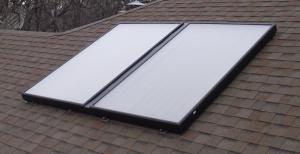South Africans, doing it for Themselves
A Look at how South Africans can Beat High Energy Prices
CAPE TOWN, WESTERN CAPE, SOUTH AFRICA, December 17, 2018 /EINPresswire.com/ -- Nobody can deny that these are tough economic times, and it is a global problem. South Africa is not the only country with several challenges, but it is definitely one with hope. For example, the current situation has spurred and motivated individuals to take constructive action. When Cape Town reached a low point during the extreme water shortage, the most innovative water conservations ideas surfaced, ultimately pushing back the dreaded Day Zero indefinitely as the rain finally started to fall again.Unfortunately, the issue with paying the electricity bill every month is a more “permanent” problem. While consumers are at liberty to choose between hundreds of brands when purchasing food, cars, toiletries and clothes, they are forced to rely on a single energy supplier, an entity which is failing underneath a mountain of increasing debt and mismanagement. Add to this the lack of payments from municipalities and it explains the consistent request for energy price hikes from the energy supplier.
But is it really such a straightforward matter? Or can South Africans do what they do best, which is to think outside the box and be creative with their environment? The truth is that small changes can go a long way, and by starting with manageable changes, there is no telling how much can be saved on the electricity.
Helpful Hints to Save Money on Electricity
- Change to Energy-Saver Lights
When energy-savers were introduced to the market, the only impressive feature the bulbs had was using significantly less energy. Switching the bulbs of five or six rooms that typically use 100 watts, to bulbs that only require between 5 and 15 watts, results in a substantial difference over the course of a year. However, energy-savers are not as warm or effective as the more expensive alternative. At least, energy-savers used to be inferior.
Modern energy-savers come in different colors, shapes, and they deliver a brightness that can equal conventional fluorescent bulbs. This is worth noting for individuals who still believe energy-savers are not worth the price, seeing as they are definitely worth it in terms of saving money in the long run.
- Unplugging Electronics
It is another small measure, but always keep in mind that every bit helps. In this case, electronic appliances with digital features might use energy when it is not necessary. For instance, the digital clock on the LED screen proves energy is being utilised, but how much purpose does it serve? And what about phone chargers and game consoles?
Several items and appliances around the house could be adding to the bill every month, which is something to consider during such challenging economic times.
- Investing in Solar
The most substantial change South Africans can make if they want to reduce the electric bill is to consider solar energy options. With websites like Solar Advice to provide free insight on how this can be done, as well as connecting home and business owners with high-quality solar equipment and installations, it is easier than ever to implement the change.
How effective can solar power be? It depends on the type of installation, but a popular starting point is a solar geyser. Considering this investment can possibly cut the electric bill by up to 50%, there is no telling what more panels on the roof can achieve.
South Africans can reduce their monthly electricity costs even if they are forced to rely on Eskom. It just requires some awareness and maybe even some guidance. But that is the purpose behind websites like Solar Advice.
Armando Da Silva
Solar Advice
+27 61 696 9153
email us here
Legal Disclaimer:
EIN Presswire provides this news content "as is" without warranty of any kind. We do not accept any responsibility or liability for the accuracy, content, images, videos, licenses, completeness, legality, or reliability of the information contained in this article. If you have any complaints or copyright issues related to this article, kindly contact the author above.

